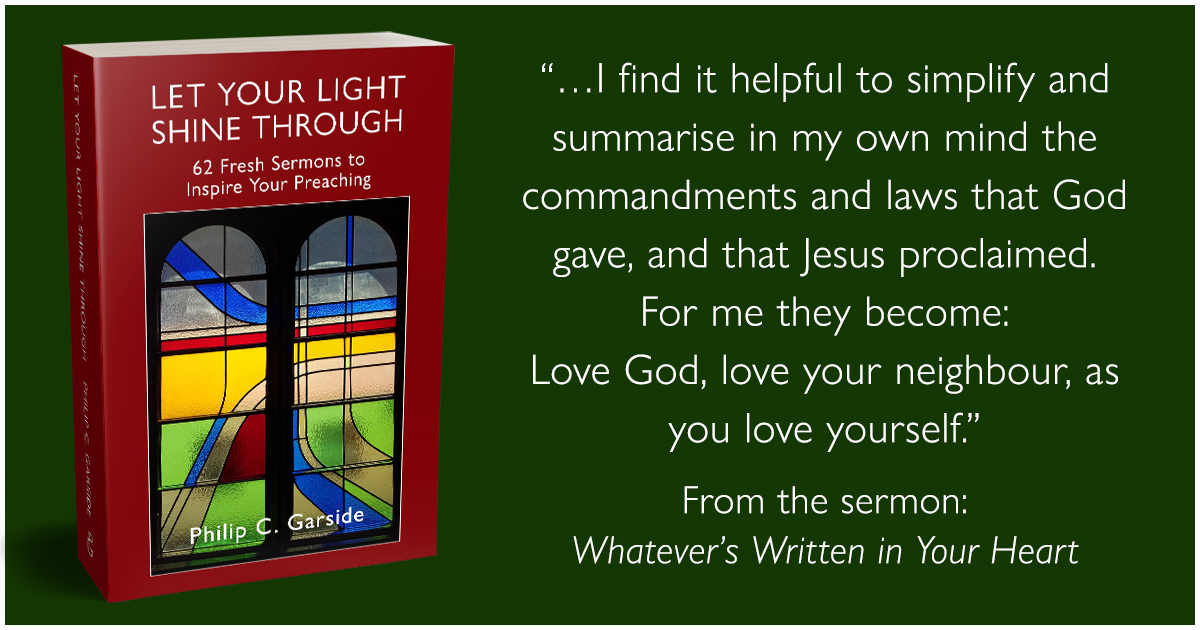Thought for the day
“I like the last part of the reading from Matthew, where we are told to simplify our speech, say “Yes” if you mean Yes or “No” if you mean No. Don’t prevaricate, hum and har or pad out your response.
I warm to this advice. It means you need to know your own heart and your own mind and then you can make a clear decision. “Yes, I will,” “No I won’t.” “Yes, I agree,” “No I disagree.”
In the same way I find it helpful to simplify and summarise in my own mind the commandments and laws that God gave, and that Jesus proclaimed.
For me they become:
Love God, love your neighbour, as you love yourself.
* * * * * *
There is a God. We worship that God. A God who is at the same time magnificent, awe inspiring and unimaginably powerful; yet also intimately present in all the small ordinary things in our lives. A God of love, whose love for us knows no limit, and no end. Hallelujah!
Who is my neighbour that I should love and care for? This is a radical, uncomfortable part of Jesus’ message. Our neighbours are our friends and our families whom we like, but also our enemies, those who are different from us and those we just don’t get along with.
Tough, they are all worthy of God’s love. Jesus knew this. John Wesley knew this. We need to be reminded too.
The last part is important. It is not that I should put myself above others or that I am better than others, but rather that as part of being in God’s realm we as individuals should also take good care of ourselves. Sometimes this will mean saying “No.” Other times it will be pausing to do something that you enjoy just for the sake of the enjoyment.
Taking these three rules to heart will help us make a heartfelt response to the need around us.”

